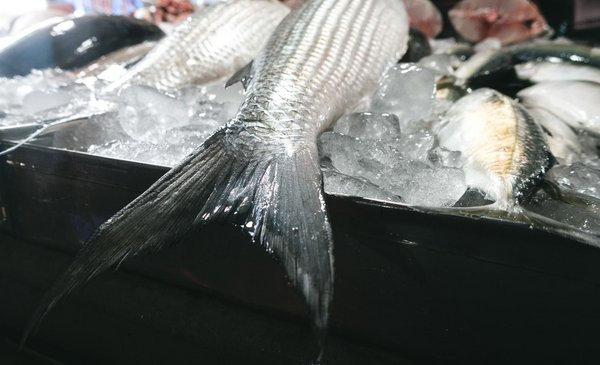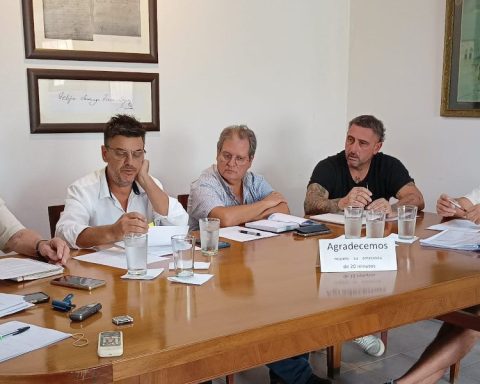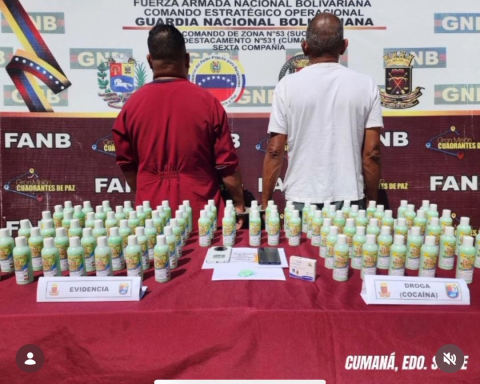There is more of 60 species in the Uruguayan sea, but the Uruguayan industry only catches three. The fleet numbers just over 50 ships. The fishermen they do not know how to capture certain species and resorting to foreign labor is not an easy task. These are some of the elements for which fishing, with a potential exporter of three or four times more in turnover per year, does not manage to come to the fore.
The reality of fishing industry It was transmitted by Uruguayan members of the Mixed Technical Commission of the Maritime Front to the Special Commission of the River Plate of the Chamber of Deputies.
Ernest Dehl, One of the representatives explained to the legislators that Uruguay does not have any research vessel related to the environment and that is why it depends on the information provided by the Argentine delegates in the commission.
Another speaker, Zapicán Bonino, also referred to the importance of aquatic research. However, he mentioned that the commission maintained contacts with the authorities and the response was that investing in a scientific vessel It is not among the government’s priorities.
“From the investigation, information is obtained on where the fishing is, what volumes there are, how it varies and evolves and establish closed areas. If it is fished indiscriminately, juvenile species are destroyed. It is common sense: if we kill the children, they cannot grow or reproduce; it’s a chain,” he explained.
Dehl recalled that the Uruguayan fishing fleet has 54 boats, compared to more than 500 from Argentina.a. Regarding the species, he explained that Uruguay only captures hake, croaker Y whitingwhen there are more than 60 in the sea.
Leonardo Carreno
Whiting
Along the same lines, Bonino said. He pointed out that one of the limitations for a greater capture of species is, precisely, the formation of the fishing fleet.
“We have eight tall ships. The rest is coastal fleet, they are small ships that go around buoying. This is why we are missing the opportunity to reach out to other resources. I am not saying that if we fished everything that could be extracted from the sea, we would reach the same volume as cattle, but we would be very close,” said the businessman.
He reported that the industry exports between US$70 million and US$100 million per year and that figure should be multiplied by three or four if the fishing fleet were boosted. According to data from the Uruguay XXI Institute, in 2021 fishing invoiced US$ 102 million for sales abroad.
The calm, coveted by the Chinese
Bonino dedicated a part of his presentation on the squidas an example of the species that are not caught and recalled the case of chinese ship who was held at the port for carrying out illegal activity.
“If the Chinese come from afar to fish for our squid, it is inconceivable that Uruguay does not have a single vessel capable of fishing for squid; there is not a single jigger,” he stated.
He explained that the little squid that is extracted is because it appears with the hake. This is called accompanying fauna.
“Like the schools of hake they are agglomerated, interspersed squid appear. Directed fishing for squid, with nets, is almost impossible, it is not done. However, squid is a highly valued species. It would be a very important resource for the country, but we are leaving it,” he added.
Dehl mentioned the octopus. “If you go to any restaurant in Montevideo you will see that a plate of octopus is worth $1,500. And in Uruguay there is, ”she assured. He remembered that some time ago there was a project for his capture that did not prosper. Bonino added that octopus fishing requires, due to its characteristics, a certain specialization.
“The Creole fisherman —speaking badly and soon— does not know how to fish octopus. Our fishermen do not know. For that we need to bring foreign people, who are everywhere; among Peruvians, Venezuelans and immigrants, there are many fishermen who have experience,” he pointed out.
But there is another drawback. “It turns out that many times these people cannot board. For the most part, because they are not unionized. That would be the least of it because they could unionize. But at the same time there are agreements and obstacles by which the union does not allow more than a minimum percentage of foreigners on board, ”he indicated.
“Unfortunately, sometimes Uruguayans are not able to step on the deck of a ship because it moves or because they don’t like it. There are people who can’t stand it, so they ship for two days and leave. So, entrepreneurs sometimes have to resort to specialized labor and they cannot do it because the conditions are not right for there to be such a percentage of foreigners on board”, he finished.


















